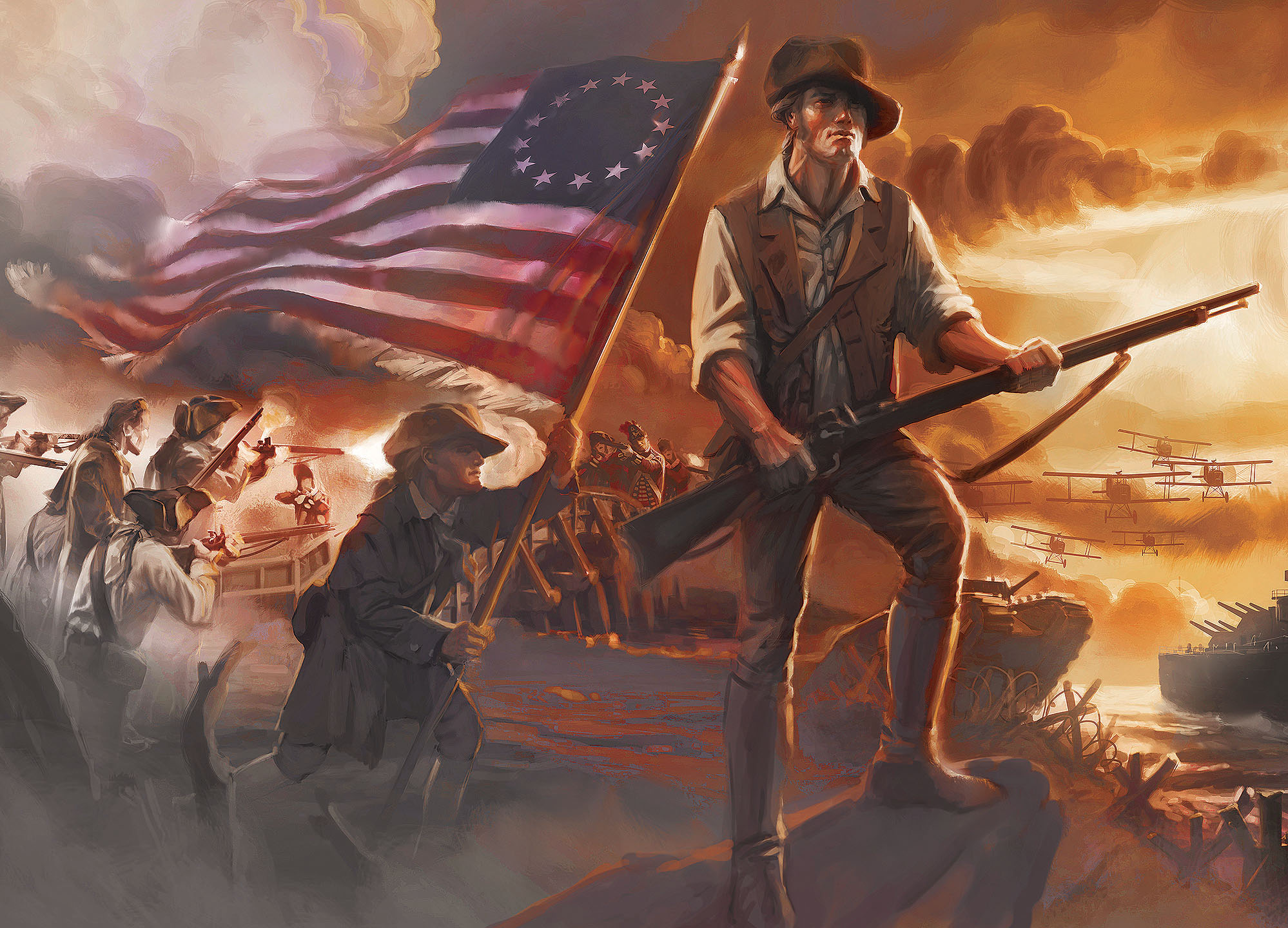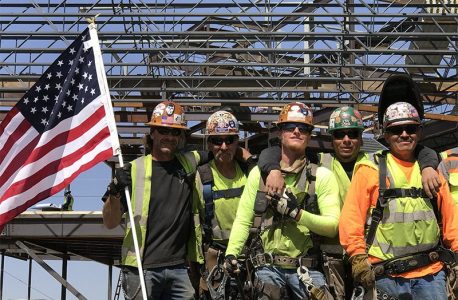By Bodhi Bronson for the American Sun
One of the most curious abominations of recent years has been the emergence of woke capitalism. Corporations in America one after another have adopted policies and positions that negatively impact their bottom line, just because they want to appease the cultural left. There is Gillette’s anti-male, pro-transgender ads; Starbucks’ pro-loitering, free public bathrooms policy; Nike’s embrace of Colin Kaepernick and his antics; and the destruction of entire movie franchises by the obnoxious insertion of artificial diversity, just to name a few.
I say “corporations in America” rather than “American corporations” because they have long considered themselves to be transnational, and I’m told that I have to respect the self-chosen identities of trans-people. According to American law, corporations are people. So if a “corporate person” can choose its (his? her? xer? I don’t know) nation simply by comparing tax codes, then why can’t real people choose their gender and race and species based on whatever flight of fancy catches their whim? Furthermore, if a corporation composed of multiple people can be one person, then why can’t a single human being also be multiple persons, each with its own identity (or each with multiple identities) with full legal rights fully guaranteed and safeguarded by muh constitution. Doubtless James Madison intended as much.
You might think I’m joking, but I fully expect a push for the normalization of multiple personalities in the coming years, not least of all because Dissociative Identity Disorder is an effect of the horrendous child abuse that our elites allegedly have a predilection for, but also because it’s a great way to increase votes—If I/we have thirteen personalities, does each one get a vote? They do if they’re all Democrats.
The corporate and financial overlords have been willing to deliberately insult and alienate their customer base in the U.S. with these extreme and unpopular positions because, for some time now, America has not been their primary market. America is yesterday’s news. It’s only got 330 million people, and most of their wages have been stagnant since the 1970s. To paraphrase Justin Timberlake in The Social Network: “330 million people isn’t cool. You know what’s cool? A billion people.”
It’s right there in the title of James McGregor’s 2005 book about doing business in China: One Billion Customers. A billion people, millions of them newly rich with money printed by the Chinese central bank. That has been the fantasy of the transnational overlords ever since China’s entry into the World Trade Organization in 2001, and probably even before, going back to the Nixon administration and the opening of China that was facilitated by Henry Kissinger and others. Western corporations have dreamed about throngs of eager and impressionable Chinese customers like a sexpat fantasizing about a submissive Asian concubine.
Free trade dogma dictates that production should be as cheap as possible in order to maximize profits. The West had nearly a hundred years of unionization and the labor movement, raising wages and increasing benefits for workers. There were also restrictions on pollution and industrial malfeasance due to environmental concerns, as well as workplace safety regulations. All of this was an encumbrance to the transnationals, an unacceptable increase in the cost of production that cut into their profits. So they began to look elsewhere, to the third world. The plan was simple: move production out of America, to countries where a corporate person can be free to be xim/xer/their self without all of these mean, oppressive rules and regulations. This is why all post-war trade agreements have reduced tariffs. At the same time, keep selling junk to the American people. We’ll call it a “service-based economy” or “the information economy.” Or something. Whatever.
In 1994, NAFTA further opened Mexico to the transnationals, and American jobs began to migrate south of the border, just as predicted by Pat Buchanan, Ross Perot, Edward Luttwak and other opponents, including some on the left. The real game-changer was China. The Chinese began by allowing the transnationals to set up shop in their country. Corporations opened factories and hired Chinese labor for pennies, to make cheap products with which to flood the American market. Within ten years, a majority of items on American shelves were made in China. They were poorer quality than products from twenty years before, but they were also cheaper, to account for the stagnant and declining wages. For a while, this system coasted along. Local shops closed, replaced by the chain outlets of the transnationals like Walmart. A few people protested with the climax being the 1999 WTO protests in Seattle, but most just accepted it.
During this time, the transnationals got rich, and so did the Chinese. Many of the Chinese factories were set up as joint ventures with Chinese partners. As time went on, the Chinese learned much about industrial production, and what they once required foreign help and oversight to do, they soon became able to do entirely on their own. Their American and other foreign partners were often only too willing to share information and technology—everybody was getting filthy rich. Donald Trump has correctly pointed out many times that the primary blame for this lies not with the Chinese but with the American business and political elites who willingly sold out their country for their own personal gain. Unfortunately, there has been no demand for accountability.
The internet then inaugurated phase 2 of this process. Shopping moved online and Amazon displaced Walmart as the prime outlet for cheap Chinese goods. The Amazonification of the economy took the condition of American workers from bad to worse. Under the phase 1 Walmart model, Americans worked low wage retail jobs, in place of the former high wage manufacturing jobs. Under Amazon, Americans don’t work at all. Chinese suppliers sell direct on Amazon, shipping direct from China, or from Amazon FBA warehouses, which are largely run by robots. Counterfeit goods, once only found in shady small shops in big cities, now abound everywhere, since Amazon and other online retailers have little if any quality control. What do they care? They get a piece of each and every sale.
So now, when Gillette gives American men the middle finger and their sales take a hit, it doesn’t really matter. They also sell razors in China, and all over the world. When Starbucks closes every single one of their American coffee shops for a day in order to have mandatory diversity training, it’s okay, they can afford it, because for years now, they have considered China to be their primary growth market. Other Western companies with a major presence in China are Nestle, Coca-Cola, McDonalds, Apple, Nike, Colgate-Palmolive, and dozens of others. But whereas these transnationals feel free to offend and spit on Western history and traditions, they are considerably more careful when addressing their new primary market. Despite appearing to care more about woke values than about profits, they tread very carefully in China, the mantra always resounding in the backs of their minds: One. Billion. Customers.
These Western companies have had the best of both worlds in China, because although they produce their products there for a fraction of the cost of production in the West, they sell the products to the Chinese as luxury imported goods, often charging higher prices than they do in the West. A pair of Nike or Adidas shoes, for example, will retail for almost double the Western price. Until recently, iPhones were more expensive in mainland China than anywhere else in the world, despite being made in mainland China. I assume that the Chinese tolerated this only because they have had a longer term strategy in mind.
The indications are that phase 3 would have been for China to move some of its production to other, less developed countries, especially in Africa, and to then expand their consumption and service industries, not unlike the path taken by America, except that I don’t think the Chinese would ever de-industrialize to the ridiculous degree that America has. America, in this phase 3, would be left to further rot and decompose, becoming a third world country. (Can there be any doubt that this process has already begun?) Maybe China would have continued to allow the transnationals to have a piece of the Chinese pie, or maybe they would have nationalized everything and told all the yang guizi to GTFO. (Xi Jinping is a much stronger Chinese nationalist than any of his recent predecessors.) We may never know, because before any of this could happen, two events monkey wrenched the plan. The first was the election of Donald Trump, and the second was the coming of coronavirus.
As I previously wrote, there is still much we don’t know about the coronavirus, and we may never know. But it seems increasingly likely that it is going to change the nature of the global economy. Americans are finally talking about the fact that it is dependent on China for a disturbingly large number of essential goods, including medical supplies. Have you tried buying surgical masks at the drug store lately? Chances are your local pharmacy is out of stock, and has been for over a month, and doesn’t know when they might get more. That’s because they’re all made in China, and China has halted all shipments of these items, because they need all they can get right now. So what happens if the coronavirus spreads in the U.S.? You won’t see crowds of people wearing face masks like you see in China—because there won’t be nearly enough face masks. And maybe not enough medicine either, since we also rely on China for much of that as well.
The Chinese economy has been at almost a standstill for two months. We don’t know how long this will last, and what the ramifications will be. There is the possibility this will become endemic in China, crippling them. But if I may permit myself to wish for a silver lining on this cloud of doom, I hope that some of the effects will be seen in the woke corporations. Now that all the movie theaters in China are closed, maybe we can put the Japanese and Taiwanese flags back on Maverick’s jacket? Now that all the Chinese Starbucks are closed or empty, maybe they can go back to selling coffee with a fake smile instead of with a sermon? Now that the N.B.A. won’t be doing any Chinese tours anytime soon, maybe LeBron James can stop kowtowing to the Communist Party?
Deprived of their one billion customers, all the woke corporations that have spat all over middle America for the last ten years, because they thought they could afford it, are suddenly going to find themselves in need of some serious rebranding. “Gillette: For Real Men Only.” “Starbucks: Cops Welcome. No Loitering.” “Nike: Proudly Made in the U.S.A.”

